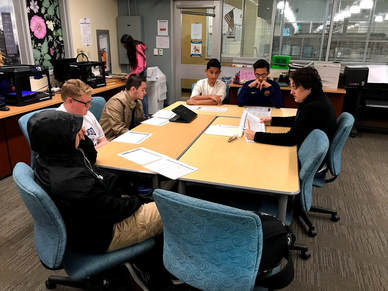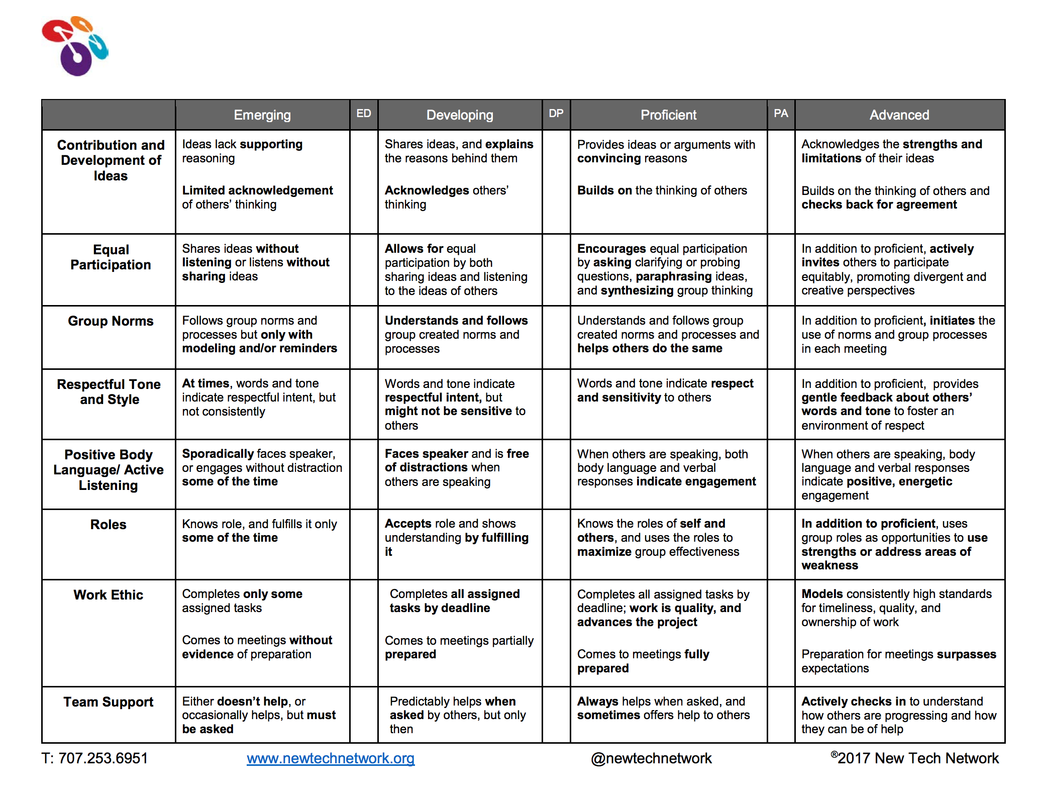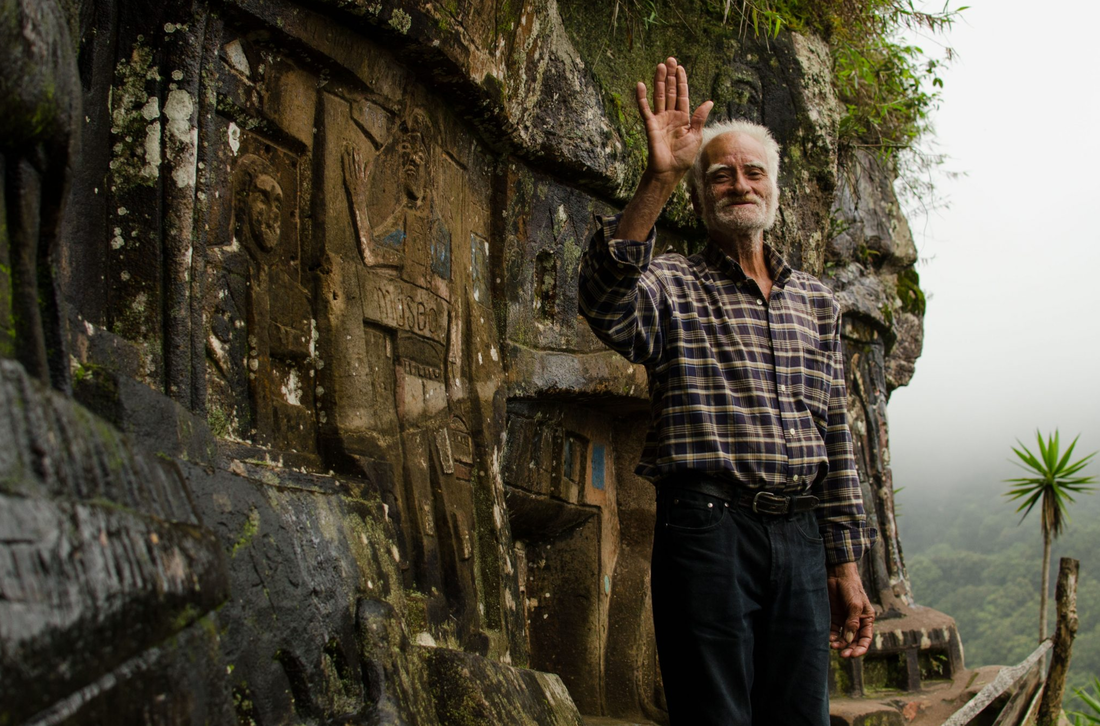|
Here's an example of a fun After Effects project that my Intro. class is working on. Some are doing simple animation like this one and some are learning how to create a camera layer to do a fly-through, which is a more 3D experience.
0 Comments
I'm left at the end of a 9th graded group project wondering how the heck I'm going to grade group collaboration and individual agency. I was in the classroom every day, but didn't see how each group actually worked together to accomplish the end goal. I may have gotten snippets as I walked around and visited, but how do I really understand who did what, where they need more support and where the areas of growth lie for each individual? The truth is, I don't need to be with every group every moment of the class period in order for students to benefit from feedback about how they are doing. Enter: rubrics and group assessments as one of the most powerful grading processes that I've found in my teaching career. It takes time to meet with every group and give the space to review each team members roles and results, but it is well worth doing this process at least once a semester, allowing for depth and incredibly productive conversations about areas of improvement, as well as places to celebrate. How it works After a 3-6 week project, the teams meet with me. I give them laminated rubrics that cover Agency and Collaboration from the newtechnetwork.org. As a group, we look at only 2-3 points on each rubric. Students are asked to assess themselves on those 2 points for Agency and then 2 points on Collaboration. We go around and each student shares out which column they think they fall in for the specific topics on the rubric and why. Then I ask the team if they agree with that assessment and if not, why they disagree. Then I give my feedback about whether I agree or disagree with the assessment. There are no letter or number grades on the rubric, but rather designations of Emerging, Developing, Proficient and Advanced (shown below.) Critical piece of the puzzle: Underlying Love and SupportThe most important part of these conversations going well is a general assumption that everyone has something to work on and that being honest, yet supportive is key. It can be hard to have a conversation about a team member's emerging skills. However, how do we expect to ever learn or improve if we are unwilling to discuss these issues with the very peers that we are expected to work with on future school projects? I like to say that these are important conversations because these students will be with each other for the next 4 years. "Wouldn't it be good to know where people's edges lie and what strategies we can employ to help our classmates in the future? And we also can talk about a person's strengths. Everyone has them, no matter where we fall on the rubric." When a teacher asks the group how they can amplify the strengths and shore up the weaknesses for each individual, it does several things:
What Students Have to Say About It"Wow, this takes a really long time!" "Can we get all our grades this way? It seems so fair." "That was a hard conversation to have. Are we still friends?" "It's really hard to give myself grades. I graded myself lower than my team mates graded me. I do that a lot." Oh! I thought you weren't joining in with team work because you have a bad work ethic. I had no idea it was because you are so shy!" "That was extremely helpful!" Establishing Culture and ExpectationsThe biggest win for me as a teacher is that I feel each student is really seen and heard and cherished for what they bring to the table. If we can do that within a school environment, especially early in a high school career, then we are building strong foundations for learning into the future. People say that New Tech High students are a special breed of kids, but I disagree. They are normal teenagers who are asked to be self-reflective in a nurturing environment. That alone changes the dynamic of learning in every classroom and builds confidence, awareness and trust. That's some powerful education magic right there. Try it and see if you can create your own special breed of student!
Check out this article on why your teens ought to participate in Outreach 360. New Tech has been sending kids on this trip for many years now and I was lucky to chaperone last summer. It was life-changing for me. Read the Article Here.
|
AuthorLisa Gottfried is a CTE teacher with 20 years experience as CEO of her own Video and Motion Graphics Production house. She currently teaches Digital Design at New Technology High School and at Touro University in the Masters of Innovative Learning program. She loves her job and her students! Archives
January 2024
Categories
All
|


 RSS Feed
RSS Feed
